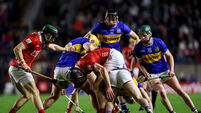Israel after Sharon, the latest uncertainty tormenting Middle East
Now there's another: the direction Israel will take with Prime Minister Ariel Sharon unlikely to return to power.
"This makes a complicated picture even harder to sort out," said Ehsan Ahrari, a political analyst based in Alexandria, Virginia.














